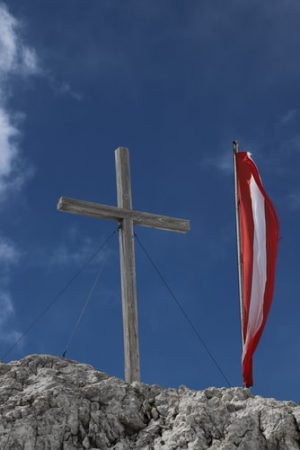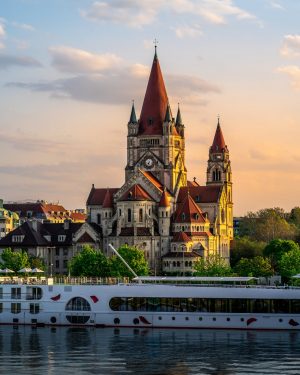The Awe of Austria
Dive into the fascinating culture and history of Austria!

When you think of European countries people always seem to gravitate towards the big ones such as Germany, Italy, Spain, or France. I bet Austria isn’t one you’ve given much thought to. Austria is a country heavily influenced by it’s neighbors Italy, Poland, Germany, and Hungary. The mainly German-speaking country is big on social cohesion and cooperation amongst it’s citizens.
The Awe of Austria can be split into two separate categories, the wonders of the Alps and historic Vienna, or the fear and uncertainty of it’s everchanging political situation.
Austria is easily passed up on as one of beauties of Europe, from the Central Eastern alps, to the Danube river, 2/3 of the country’s total area is woodland and meadows. The Central Eastern Alps span across Austria, Switzerland, Lichtenstein, Italy, and Slovenia. Known for skiing and hiking, these wonders of the earth reach a staggering 13,284 feet. Staying within the theme of earth’s beautiful creations, the Danube River is the second longest river in Europe as it goes from the Black Forest all the way into the Black Sea. Flowing through Germany, Austria, Slovakia, Hungary, Croatia, Serbia, Romania, Bulgaria, Moldova, and Ukraine, this river is a jaw-dropping 1,771 miles. That is a lot of water! One of the cities that the Danube flows through is Vienna, a city rich on culture and the history of Austria. The architecture ranges from modern to historic. You can see anything from a castle, to a McDonald’s chain. The artistic culture of the city was heavily impacted by Mozart, Beethoven, and Sigmund Freud.

Currently in a Federal Parliamentary Republic, it seems that Austria can’t keep a stable government. Currently the country runs with a president, and a chancellor which respectively run the state and the government. The local and federal governments exercise executive power. Ever since the country’s incorporation into Germany by Hitler during World War II the country is forever changing it’s leaders and form of government. Joining the United Nations in 1955 and the European Union in 1995, steps were taken in the right direction for Austria. One common action in the country seems to be the formation of coalitions, from the green party, the freedom party, and between conservatives and democrats. These alliances never seem to pan out as planned which emphasizes the unstable government found in Austria.
To further put you in awe, the headlines that Austria gets are so sporadic and bizarre that it makes you scratch your head and think “Did that really happen?” In 1986 Kurt Waldheim was elected president despite his controversial role as a Nazi during WW2. In 2002 the Danube’s bank burst and caused terrible floods in the country causing millions of dollars in damage and even leading to around 100 deaths. In 2008 Josef Fritzl, who was thought to be an everyday Austrian citizen, was sentenced to life in prison after imprisoning his daughter in a basement for 24 years and fathering children with her. That’s something you don’t hear everyday. In more recent news, a jihadist gunmen killed 4 people in central Vienna back in November.

Austria surely is a very fascinating country for many different reasons, it might not be the ideal location to live, but if you’re in Europe it surely is a worthy stop for a quick visit.
